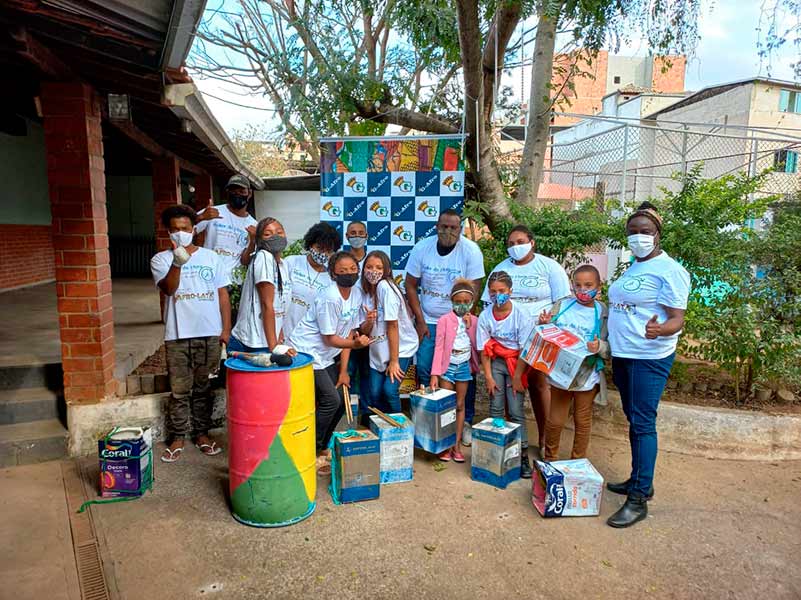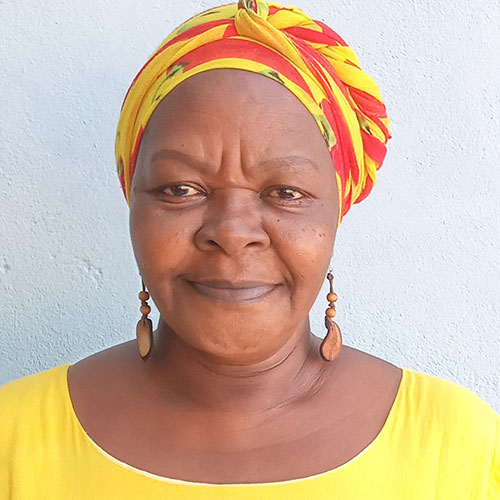The “Melhor da Hora” project encourages students through music and recycling
The Melhor da Hora project was created within the Dilermando Costa Cruz State School, in the neighbourhood of Linhares, in the East Zone of Juiz de Fora, Minas Gerais, by teacher Andréia C. da Costa in 2019 and it seeks to encourage the practice of recreational activities.


Understanding the good idea:
Andréia , as a teacher in charge of the library at the school, received students to carry out activities on site, she observed a high level of dispersion and indiscipline among them. She noticed the lack of respect for each other’s personal space.
Students were unable to participate profitably in the proposed activities as a result of these behaviours, which was reflected in the classroom and in other social settings. That’s when she had an idea for something they could do that would indirectly change this behaviour, in addition to encouraging student integration and improving school performance.
“At first, we only worked with students from the 6th to the 9th grade. In January 2020, registration was opened to the community from the neighbourhood and surrounding areas. The aim of the project was reducing indiscipline and the dispersion of students inside and outside the classroom, so we thought of playful and enjoyable activities related to art, so that during school hours, they would have a range of different activities while they were in school, in addition to the curriculum. An activity that would encourage the integration among them, giving notions of citizenship and at the same time is fun. That’s how Melhor da Hora was born. The goal is to make the time they spend at school the most enjoyable part of their day.”, said Andréia about the project.
How did it start?
- Percussion workshops with recycled material
- Citizenship, health, rights, and other workshops
- Workshops on environment preservation
Audience age group
The current age group goes from 7 to 18 years old. The medium-term goal is also to include the elderly.
The main materials used during the activities are recycled, such as paint cans and empty drums. It helps and makes students aware of the importance of recycling, reusing materials and preserving natural resources.
What changes took place?
Community involvement is critical to the maintenance of the project.
The activities take place in places provided by the local Catholic church, the Residents’ Association and the school where the project was born. Merchants in the region also donated shirts to the participants of Melhor da Hora. NGO Afro Lata, is also an important partner, which collaborates by providing the percussion instructor.
Support materials are needed to carry out the activities and the project does not have the needed financial resources to buy them. The snacks the students receive during the activities come from sporadic donations from two businesses in the neighbourhood.
When drumsticks and other support materials, such as plastic benches to support the cans, are required, charitable activities using donated objects are carried out to raise funds and cover these expenses. The purpose of the project is always using recyclable material and never common instruments. That’s why empty bottles and paint cans are obtained through donations.
Challenges and Victories
Challenge: to continue the project without the necessary resources and to broaden the workshops to the elderly, because there is no type of activity in the neighbourhood that includes them.
Victories: the continuous increase in the number of people who have benefited; the reports of mothers and guardians about the changes in their sons and daughters after their participation in the project.
How to support?
“The team is made up of four people: a coordinator, two assistants and an instructor that depends on his time availability, as it is provided by the partner NGO, Afro Lata. We are in need of an instructor who can dedicate himself fully to the project. Currently the entire team is made of volunteers. We also need to buy permanent materials, such as microphones, amplified speakers, microphone stands, benches and others.”, says Andreia for Neuza’s Column.
Due to the pandemic, activities had to be reduced and the number of people assisted is also smaller in each workshop, but it remains active. The project currently has thirty children and young people enrolled.
One of the goals with fundraising is to cover the travelling costs of students who live in areas further from classes, in addition to acquiring a headquarters to expand activities.
For more information about the project: ccdetprojetos@gmail.com



